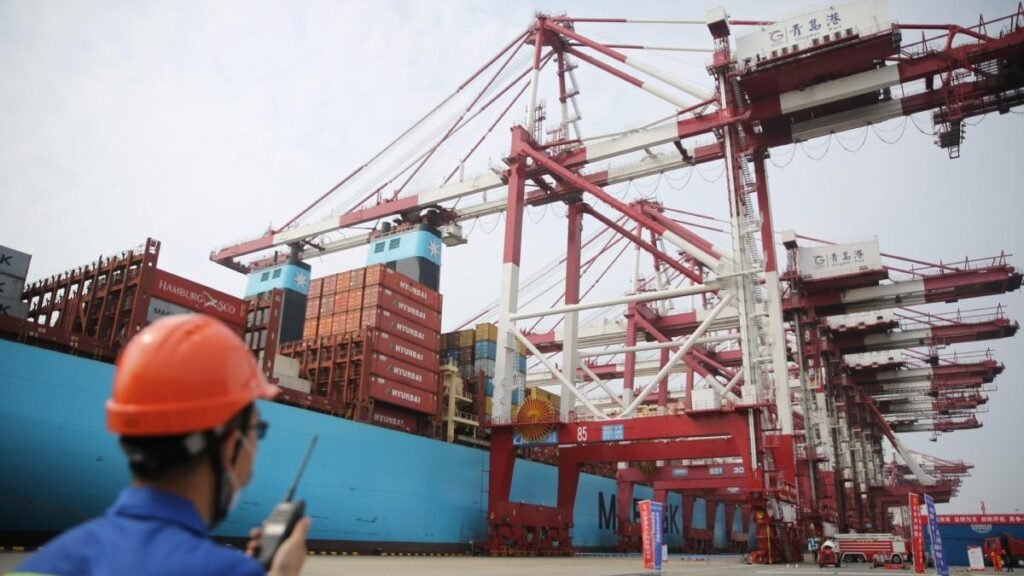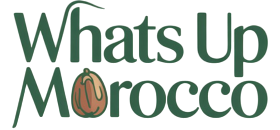
Imagine standing on the bustling streets of Casablanca, surrounded by a blend of modern skyscrapers and centuries-old architecture. The aroma of freshly brewed mint tea mixes with the hum of business conversations in multiple languages. Morocco, a land where tradition meets innovation, is increasingly becoming a magnet for foreign investors eager to tap into its strategic location, youthful workforce, and vibrant markets.
If you’ve ever wondered about the nuances of Foreign Direct Investment (FDI) in Morocco—what makes it attractive, the sectors that thrive, and how you can capitalize on this opportunity—you’re in the right place. This comprehensive guide will walk you through the ins and outs of FDI in Morocco, sprinkled with stories, expert insights, and practical advice to help you make informed decisions.
Why Morocco? A Strategic Gateway to Africa and Beyond
The Geopolitical Advantage
Morocco’s geographical position is nothing short of strategic. Nestled in the northwest corner of Africa, it serves as a bridge between Europe, Africa, and the Middle East. The country boasts direct access to the Atlantic Ocean and the Mediterranean Sea, making it a natural hub for maritime trade.
Key facts:
- Proximity to Europe: Just a few hours by plane from major European cities.
- African markets: Acts as a gateway to over 1.2 billion consumers across the continent (source: World Bank).
Political Stability and Economic Reforms
Morocco has maintained relative political stability over the past decades, fostering a conducive environment for investment. The government has implemented reforms aimed at liberalizing the economy, improving the business climate, and incentivizing foreign investors.
Notable initiatives include:
- The Moroccan Investment Charter (2001), offering tax incentives and streamlined procedures.
- The Industrial Acceleration Plan (2014), boosting manufacturing and export sectors.
- The 2020-2025 Strategic Plan for renewable energy, positioning Morocco as a leader in clean energy.
Growing Economy and Market Potential
With a GDP of approximately $124 billion in 2022 (source: IMF), Morocco’s economy is diverse, spanning agriculture, manufacturing, tourism, and services. Its youthful population—over 60% below age 30—creates a dynamic labor force ready to support burgeoning industries.
Key Sectors Attracting FDI in Morocco
1. Automotive Industry
Morocco has emerged as a significant hub for automotive manufacturing, with global giants like Renault, PSA Peugeot Citroën, and Fiat establishing regional plants. The sector benefits from:
- Competitive wages
- A skilled yet affordable labor force
- Strong supply chain networks
Story highlight: Renault’s Casablanca factory produces over 400,000 vehicles annually, serving both local markets and exports (source: Moroccan Agency for Investment and Export).
2. Aerospace
Morocco’s aerospace industry is expanding rapidly, with companies like Boeing and Airbus investing in manufacturing facilities and training centers. The country offers:
- Certified aerospace zones
- Specialized workforce training programs
- Strategic location for supply chain logistics
3. Renewable Energy
Morocco aims to produce over 50% of its electricity from renewable sources by 2030. Projects like the Ouarzazate Solar Power Station showcase its commitment, attracting investments in solar and wind energy.
Expert insight: Renewable energy investments are supported by favorable tariffs and government incentives, making it an attractive sector for sustainable investors.
4. Agriculture and Food Processing
Morocco’s diverse climate allows for the cultivation of fruits, vegetables, and grains. FDI in agribusiness and food processing benefits from proximity to European markets and growing domestic demand.
5. Tourism and Hospitality
With its rich history, stunning landscapes, and cultural heritage, Morocco draws millions of tourists annually, creating opportunities in hotel development, travel services, and entertainment sectors.
Navigating the FDI Landscape: Opportunities and Challenges
Opportunities
- Market Diversification: Morocco’s economy offers multiple avenues for investors to diversify their portfolios.
- Government Incentives: Tax exemptions, customs duty reductions, and dedicated investment zones.
- Free Trade Agreements: Morocco has agreements with the EU, US, and African countries, facilitating market access.
Challenges
- Bureaucracy: Despite reforms, some investors experience delays due to administrative procedures.
- Regulatory Complexity: Navigating legal frameworks requires local expertise.
- Language Barriers: While French and Arabic are official languages, English proficiency is increasing but still limited in some sectors.
Practical tip: Partnering with local consultants or legal advisors can smooth the process and ensure compliance.
The FDI Process in Morocco: Step-by-Step
- Market Research: Understand sector-specific opportunities, legal requirements, and market dynamics.
- Business Registration: Register with the Moroccan Commercial Registry and obtain necessary licenses.
- Incentive Application: Apply for tax benefits or investment incentives through the Moroccan Agency for Investment and Export (AMDIE).
- Legal and Regulatory Compliance: Ensure adherence to labor laws, environmental regulations, and industry standards.
- Establish Local Presence: Choose suitable locations, such as industrial zones or free trade zones.
- Operational Setup: Hire staff, set up facilities, and begin production or services.
Incentives and Support for Foreign Investors
Morocco offers a variety of incentives designed to attract and retain foreign investments:
- Tax Exemptions: For certain sectors and zones, including customs duties and VAT.
- Special Investment Zones: Such as the Tanger-Med Free Zone, offering streamlined procedures and benefits.
- Financial Support: Access to funding programs and grants through institutions like Bank of Africa and Moroccan Agency for Export and Investment.
Learn more: For detailed information on incentives, visit Invest in Morocco.
Comparing Morocco with Other Emerging Markets
To help visualize Morocco’s position, here’s a comparison table emphasizing key features relative to other emerging economies:
| Feature | Morocco | Tunisia | Egypt | South Africa |
|---|---|---|---|---|
| Strategic Location | Gateway to Africa & Europe | Gateway to Africa | Gateway to Middle East & Africa | Southern Africa |
| Main Sectors | Automotive, Aerospace, Renewable Energy | Agriculture, Textiles, ICT | Oil & Gas, Construction | Mining, Finance, Tourism |
| Investment Incentives | Tax breaks, Free Zones, Simplified Procedures | Tax incentives, Industrial Zones | Investment law incentives | Special Economic Zones |
| Ease of Doing Business (2023) | Rank: 70 (World Bank) | Rank: 78 | Rank: 114 | Rank: 44 |
| Market Access | EU, US, Africa | EU, Arab League | EU, Africa, Middle East | BRICS, African Union |
Note: Rankings are approximate as of 2023 and vary by source.
Real-Life Success Stories: Inspiration from the Ground
The Case of OCP Group
OCP Group, a Moroccan phosphate producer, transitioned from a local company to a global leader in fertilizers. Its strategic investments in Africa and Asia showcase how FDI can propel a national company onto the world stage.
The Rise of Casablanca’s Tech Scene
In recent years, Casablanca has become a burgeoning hub for tech startups and innovation, attracting foreign venture capital and establishing Morocco as a digital economy player.
Practical Advice for Potential Investors
- Conduct thorough due diligence: Understand local laws, market conditions, and cultural nuances.
- Leverage free trade agreements: Use Morocco’s trade deals to access European and African markets efficiently.
- Partner with local entities: Collaborate with Moroccan firms or chambers of commerce to build networks.
- Invest in workforce training: Skilled labor is crucial; consider partnering with educational institutions.
- Stay informed: Monitor policy updates via sources like Moroccan Investment and Export Agency.
Frequently Asked Questions (FAQs)
1. Is Morocco open to foreign investment?
Yes. Morocco actively encourages FDI through various incentives, a relatively stable political environment, and strategic policies. The government’s goal is to become a regional hub for manufacturing, renewable energy, and services.
2. What are the main sectors attracting FDI?
Automotive, aerospace, renewable energy, agriculture, tourism, and information technology are among the top sectors.
3. How long does it take to establish a business in Morocco?
Typically, the process can take between 2 to 6 months, depending on the sector and complexity. Engaging local legal and business consultants can expedite procedures.
4. Are there specific zones for foreign investors?
Yes. The Tanger-Med Free Zone, Casablanca Finance City, and other industrial zones offer special benefits and streamlined processes.
5. What are the risks involved?
Risks include bureaucratic delays, currency fluctuations, and regulatory changes. However, these can be mitigated through careful planning and local partnerships.
6. How does Morocco compare to other African nations for FDI?
While countries like Nigeria and South Africa attract significant FDI, Morocco offers a more stable political climate, attractive incentives, and easier access to European markets.
7. What legal considerations should I keep in mind?
Investors should review corporate laws, labor regulations, environmental standards, and any sector-specific regulations. Consulting local legal experts is highly recommended.
8. How can I ensure successful integration into the Moroccan market?
Building relationships with local partners, understanding cultural norms, and adapting your offerings to local preferences are key.
Final Thoughts: Why Morocco Deserves Your Attention
Morocco stands out as a promising destination for foreign direct investment, thanks to its strategic location, diverse economy, and proactive government policies. Whether you’re interested in manufacturing, renewable energy, or digital innovation, the opportunities are plentiful—and the country’s openness to foreign investors continues to grow.
The path to successful FDI in Morocco requires careful planning, local insight, and a willingness to adapt. As you consider expanding your horizons, remember that Morocco’s unique blend of tradition and modernity offers a fertile ground for your investments to flourish.
Next Steps
- Research specific sectors that align with your interests.
- Connect with local chambers of commerce like the Moroccan-American Chamber of Commerce.
- Consult with legal and financial advisors familiar with Moroccan regulations.
- Explore investment zones and incentives through Invest in Morocco.
- Visit Morocco to experience the market firsthand and build relationships.
Embark on your investment journey with confidence—Morocco is ready to welcome you!
